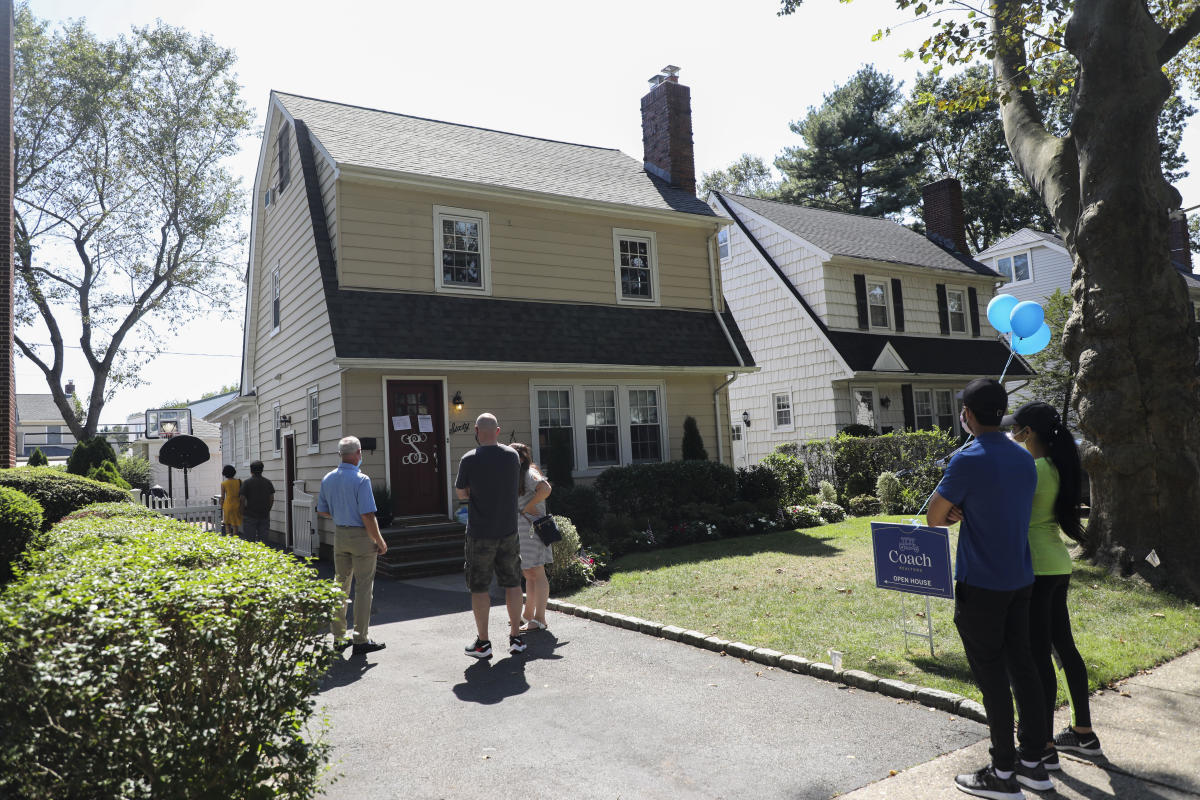Best I can do is a biannual 2.7% COL increase chief.
I got shit because my director is a jerk
No one gives raises like a new company
Welp, I couldn’t afford it then either. Might as will cost a billion dollars.
By contrast, there are seven markets among major metros where would-be buyers need to earn $200,000 or more to afford a typical home. The top four were all in California — with San Jose taking the lead at ($454,296), followed by San Francisco ($330,864), Los Angeles ($279,250), and San Diego ($273,613).
Just looking on Zillow and searching for “San Jose, CA”. The homes listed are mostly “single family homes” starting at or more than $650K. Not many of the homes have easy access to amenities.
I don’t know about y’all. But I don’t give a fuck about the “American dream” home (ie, 0.25 - 0.5 acre). I don’t want a hellish car commute.
I want easy access to the places of interest — restaurants, diverse range of stores, grocery options, parks, libraries, night life. All of it within a walking or biking distance. Even accessible by public transportation is fine with me. Would be nice to have a “third place” I can have easy access to, toss back a few beers with the m8s or neighbors, and not have to worry about killing somebody or getting killed myself because of a hasty decision to drive home back to your shitty little fiefdom.
The problem with housing affordability in America is the unreasonable expectation of owning a massive plot of land, having access to this plot of land subsidized by the city and state via regional highways, local access roads, expanding of infrastructure (water, sewage, electric, internet).
The world is growing at an exponential rate. We can’t simply rely on using the experimental model proposed in the 1950s and pushed by the O&G and auto industries. It’s not going to scale. Current generations are fucked. Future generations to be fucked even more. I would be surprised if future generations even have access to clean water, clean air, and a non-contaminated food supply.
I don’t know about y’all. But I don’t give a fuck about the “American dream” home (ie, 0.25 - 0.5 acre).
I care about it. I hate newer homes that have a tiny strip of grass around them and windows that look right into the neighbor’s windows or at their wall which is 3 feet away. I recognize that everyone has different things that are important to them, but for me, having outdoor space that is my own is important. I enjoy growing my own fruits and vegetables, creating attractive landscaping, throwing a ball around with the dog, sitting in the sunshine with my wife. There are so many activities that I need to feel comfortable and at home that I can’t participate in modern homes. The builders are buying up older houses, splitting the lots into 2-4 parcels, and building houses that extend to the end of the respective property, and I hate it.
Absolutely agree. Our current house sits on a 1/3 acre lot, and the back of our property is a creek and some trees between the houses on our street and the street behind us. In summer we can barely even see the houses from our back deck. We also have large dogs, so having plenty of yard space to play is paramount. And this house is 5 minutes from the highway in a major metro. That said, we’re both very ready to move because the house itself is no longer to our liking. Yes it was a great step up from an apartment, however as our lives have changed, so has what we want in a living space.
The thing that keeps us here is the lot itself. I sat outside listening to and watching the wildlife scamper through the trees, the birds singing, our pair of barred owls calling to each other… The thought of giving that up for a yard the size of a postage stamp and neighbors so close I can smell their dinner cooking does not appeal. I’m sure at some point we’ll have to make the choice, but for the moment I’m taking the yard.
That sounds amazing! What a perfect property. We just moved an hour outside of town ourselves, so that we could get some property and space to call our own. Anything in town with property was over a million dollars. Out here in the mountains it’s affordable, and beautiful. The loss of convenience was a sacrifice for sure, but we think it’s totally worth it. Our backyard is adjacent to a forest, and there’s a large river 5 minutes from the house. People come up here on the weekends to enjoy the scenery, and we live it every day. We feel truly blessed.
Why can’t you do these things in the backyard of a townhome?
In the area I live most townhomes don’t have backyards, they have little patios. Even newer single family homes don’t have enough room in their “yards”. There’s a small strip of grass, and a small concrete deck, and that’s it.
It’s funny, I’m eyes wide open on the driving factors that shaped suburbia and light rural living.
But all I want is my neighbors further away, and a long fucking bike path to shops/pubs. Gimme 1, 2, 5 acres and a big fucking fence. Make my neighbors shutins who never even open their windows. I mean, make them a tree if I can.
If I hear a neighbor open a door, start a car, or speak, I’m way too close.
I would be fine with that arrangement if living in the city actually made economic sense. Yeah, if you really value that sort of lifestyle then you can’t really put a pricetag on it, but the pragmatist in me sees a studio apartment in the city going for as much as a mortgage on a modest new house in the suburbs and I just can’t justify paying more and getting less out of it.
Even the suburbs now are unaffordable. Everybody is getting pushed further and further out from job centers and the commutes are hellish. I’ll never understand why there’s such a push for return to office from big tech companies when what we need more than ever is more freedom to relocate and work from home if possible.
You’re absolutely right, I’m here to tell you from experience. Land and homes are still cheap in many rural areas, and you can get good Internet connections in many such places. WFH in low cost of living area is the best way to win against today’s economy.
But even if you don’t want a huge lot out of town housing is still unaffordable. My parents first house was 88p sq ft. My mom once told me that she could vacuum the whole house from the same electrical outlet. That house cost $33,000 when they bought it 40 some years ago. If you look it up it’s now it’s worth $758,000.
Removed by mod
Global population growth has slowed down since the 60’s but it’s still just under 1% per year
Subsidized by “city and state?” I pay taxes for these exact things. These arent things that just happen because government prints money or decides to do things as a kindness. I pay taxes to build and maintain the infrastructure around my home and the amenities I want to go to and use.
I choose to live in a suburb of a major city where I can have all the amenities I desire and easy access to public trans for the big city (which I’d much rather use than drive in.)
And those pay increases happened where?
The stock market
Who could have predicted that shutting down the entire economy with zero safety nets in place and allowing corporate interests to buy up the entire housing market could have had such disastrous effects?
Safety nets were in place. That’s why companies got money to pay employees.
I do not think corporations should be able to buy SFH except in rare conditions. I don’t mind landlords as there is a need for rentals but I have an issue with companies with billions of dollars buying up houses.
That’s why companies got money to pay employees.
Lmao okay.
PPP was the biggest wealth funnel in modern American history. The funny part about how leftists always defend COVID policies is that they’re defending what was maybe Trump’s biggest grift. Certainly the most successful, because even his most vocal opponents will eat themselves alive the second one of their own criticizes it, and MAGAts have no issue with doublethink.
I don’t mind landlords as there is a need for rentals
You’re equating two different issues as one. Yes, there is a need for short-term housing. No, that does not mean that landlords are the ones who should manage it.
The PPP itself was just fine, Trump got rid of the independent oversight watchdog that was to look over it. And months later once it was trying to hobble its way back to oversight, the administration instructed government agencies to be as uncooperative as possible. So of course without a watchdog, the foxes took everything they could from the hen house. The program itself wasn’t the issue.
Trump got rid of the independent oversight watchdog that was to look over it.
And unsurprisingly billions of dollars disappeared shortly afterwards.
The intent was good. The execution was bad. The government has been clawing back funds and putting people in prison. They had a time crunch to get it done and that led to some issues
The lady who cuts my hair lived of ppp because she wasn’t allowed to cut hair. It was a life line for millions of people. If you were paid during Covid and were not working. Thank the ppp money.
No, that does not mean that landlords are the ones who should manage it.
Then who should manage it?
Removed by mod
And then even more theft because Trump neutered the court’s ability to requisition records.
Your anecdote does not disprove the fact that nearly half a trillion dollars is estimated to have been frauded from the US Govt. via PPP and other Trump COVID policies
Then who should manage it?
Maybe, like, I dunno, affordable, community owned-and-managed housing, where living costs aren’t determined by what color Corvette the landlord wants this year, would be a good start.
I have no desire to live in the projects. No thank you.
Lmao there’s the mask off moment
That’s not a mask off moment. I have no interest in living in the projects. I’d rather rent a nice house in a nice neighborhood. I don’t want the government involved with my housing.
There were several safety nets in place for both people and businesses.
So how is inflation since 2020 calculated to be “only” around 20%? Is there a bunch of stuff that went down in price to counteract or are inconvenient items simply not counted as part of inflation?
The latter.
The housing market is stale as fuck, no one is buying and sellers aren’t willing sell for reasonable prices. We’re starting to see some short sales though which is a start.





